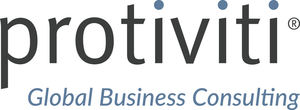MENLO PARK, Calif., June 18 /PRNewswire/ -- Attitudes toward Sarbanes-Oxley (SOX) compliance and spending evolve significantly the longer a company is involved with the compliance process, according to new research from Protiviti (www.protiviti.com), a global business consulting and internal audit firm. Protiviti's 2010 Sarbanes-Oxley Compliance Survey (www.protiviti.com/soxsurvey) reports that 70 percent of surveyed executives in year four or beyond of their SOX compliance indicated that the benefits of compliance outweighed its costs, compared to only 39 percent of surveyed executives in their first-year compliance. This finding is largely attributable to the significant decline in compliance costs as companies gain experience in applying Section 404 of SOX.
(Logo: http://photos.prnewswire.com/prnh/20090115/AQTH541LOGO)
(Logo: http://www.newscom.com/cgi-bin/prnh/20090115/AQTH541LOGO)
Protiviti's 2010 Sarbanes-Oxley Compliance Survey – which includes feedback from more than 400 U.S. executives and professionals across numerous industry sectors – assesses the current state of SOX compliance, related costs, associated benefits and value, as well as how to achieve a desired state of verifiable compliance and sustainability.
Business leaders surveyed report, on average, a 50 percent reduction in compliance costs among companies in their fourth year and beyond. In addition, most survey participants – 87 percent – believe SOX compliance offers some benefit beyond simply fulfilling SEC regulations.
"Organizations have come a long way in the eight years since SOX was first enacted," said Bob Hirth, Protiviti executive vice president and leader of the firm's global internal audit and financial controls practice. "What was once a compliance 'burden' for many companies, managed in an ad hoc or project manner and at a high cost, has evolved into something broader than its original objective. While not everyone agrees with all of its requirements, respondents in our survey certainly recognize that SOX has triggered benefits including increased efficiency and effectiveness of processes and operations, greater understanding of control design, and operating effectiveness."
"Together with the reduction in compliance costs that more companies are achieving, these benefits have resulted in new, more positive views toward SOX," Hirth added.
Other key findings from Protiviti's SOX survey include:
- Nearly 80 percent of all organizations participating in the survey said they automate less than half of their key controls, indicating an opportunity to increase efficiency. However, most respondents said their organizations had minimal plans for additional automation.
- More than 70 percent of respondents indicated a high dependency on spreadsheets, making it the top inefficiency negatively impacting SOX compliance efforts.
- Thirty-five percent of respondents plan to use continuous monitoring tools or techniques this year as a key part of their SOX compliance strategy.
- Close to half of respondents perform all of their SOX compliance work in-house. Outsourcing of SOX work is typically highest during the initial compliance years.
"It's very important for organizations to continuously examine the state of their compliance processes to ensure they are cost-effective and add value to the organization," said Jim DeLoach, a Protiviti managing director and the firm's senior SOX practice leader as well as a key survey architect. "Companies can achieve significant benefits from SOX beyond compliance, but to do so they need to view their efforts as an ongoing activity that should mature and improve over time. That emphasis would lead them to evaluate the upstream business processes impacting financial reporting. Streamlining and automating those processes would lead to more cost-effective internal controls which, in turn, lead to more cost-effective compliance."
Protiviti's 2010 Sarbanes-Oxley Compliance Survey gathered insights from C-suite executives, corporate Sarbanes-Oxley leaders and audit professionals at companies with gross annual revenues ranging from less than $100 million to more than $20 billion. Sixty-eight percent of respondents work for companies in or beyond their fourth year of SOX compliance and 70 percent are from large or accelerated filers.
The 2010 Sarbanes-Oxley Compliance Survey was conducted in the first quarter of 2010 to assess the strategies and tactics companies have employed to derive value from the SOX compliance process. A complimentary copy of the survey is available at: www.protiviti.com/soxsurvey.
About Protiviti
Protiviti is a global business consulting and internal audit firm composed of experts specializing in risk, advisory and transaction services. The firm helps solve problems in finance and transactions, operations, technology, litigation, governance, risk, and compliance. Protiviti's highly trained, results-oriented professionals provide a unique perspective on a wide range of critical business issues for clients in the Americas, Asia-Pacific, Europe and the Middle East.
Protiviti has more than 60 locations worldwide and is a wholly owned subsidiary of Robert Half International Inc. (NYSE: RHI). Founded in 1948, Robert Half International is a member of the S&P 500 index.
Protiviti is not licensed or registered as a public accounting firm and does not issue opinions on financial statements or offer attestation services.
SOURCE Protiviti
WANT YOUR COMPANY'S NEWS FEATURED ON PRNEWSWIRE.COM?
Newsrooms &
Influencers
Digital Media
Outlets
Journalists
Opted In



Share this article